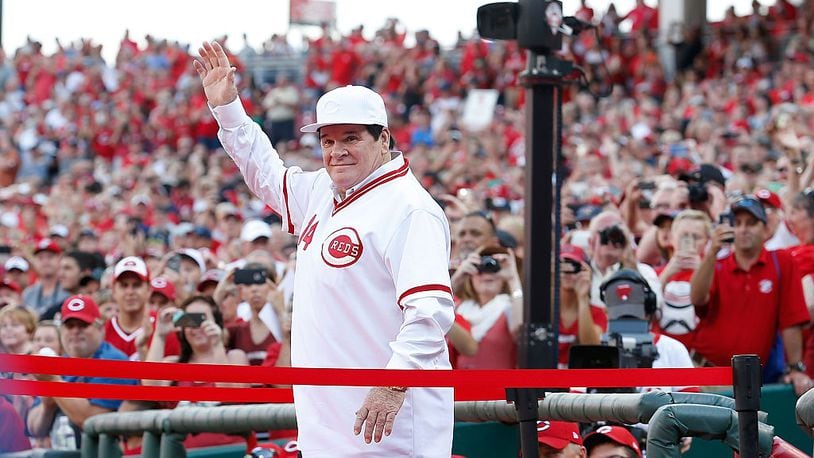1. The lift of the federal ban on gambling on sports does not impact Pete Rose’s eligibility.
“No matter what happens with gambling in the United States, there will always be a rule that prohibits on-field personnel, managers, coaches, players, front-office personnel from betting on their sport,” Manfred said.
He also issued a non-denial denial when asked if MLB has more evidence Rose bet on baseball as a manager or player than has been released.
2. The designated hitter is probably not coming to the National League any time soon.
Patrick has frequently noted he gets the sense the DH will eventually be universal, but Manfred disagreed.
“I’d leave it alone,” the commissioner said when asked about changing the current setup in which the American League uses a DH but the NL does not.
“To the extent that we have an issue with offense, if that’s your issue, if you look at the two leagues, I’m not sure the DH is your answer.”
>>READ MORE: 5 ways to make baseball even better
He expressed concern about bringing about the end of the way baseball was originally played.
“If (the National League) adopts (the DH), the pure form of baseball that’s played in the National League becomes extinct. I think there would be some reluctance.”
Report: Reds have expressed interest in long-term deal for Scooter Gennett https://t.co/qFwsXVi0Wr pic.twitter.com/mxu4Uj7DxN
— daytonsports (@daytonsports) July 15, 2018
3. He did not rule out banning the shift.
“I think it is a broader issue than shifts,” Manfred said, noting the major expansion in use of shifts came about in a short amount of time as an organic reaction to the availability of more statistics.
He acknowledged a sense owners want to discuss potentially “being more proactive as far as rules changes in response to what is happening organically.”
He also mentioned concerns about the increased use of relief pitchers, but in both cases warned against unintended consequences.
Joey Votto wants shift to be removed, to keep DH out of the National League and to have cereal with Rogers Hornsby https://t.co/ZqqaoVl7YI
— Marcus Hartman (@marcushartman) July 17, 2018
4. MLB has found getting more kids to play baseball wasn’t as hard as they might have expected.
Be it through one-day camps, organized leagues or via academies in “underserved areas,” the league has found investing in getting more kids to play baseball has worked.
“We have a safe game that provides tremendous playing opportunities, that teaches great values, and we’ve had a tremendous amount of success,” he said, noting society as a whole is dealing with declining participation in all youth sports.
Citing “industry numbers,” Manfred said baseball participation by children under 12 has increased six percent over the last three years while all other sports are down.
“The trick is being where kids are and being able to put money out there to provide them with opportunities.”
5. He likes the idea of 32 teams in MLB — eventually.
That would mean adding two more teams to the league at some point, but the commissioner said it would create more scheduling flexibility and create more options for the playoffs.
It would also inevitably include some realignment.
As far as potential new MLB cities? He mentioned Las Vegas, Portland, Nashville, Charlotte, Montreal (or another Canadian city) and (in the longer team) a city in Mexico.
About the Author
